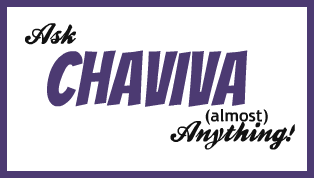"I have my first meeting with the Beis Din this week, and I am super nervous! Any advice?"That first beis din (also beit din, or rabbinical court) meeting can be a serious nightmare. Or, rather, it can feel like it's going to be a nightmare, and afterwards you might be kicking yourself for every little hesitation or self-questioning moment you experienced. Chances are you'll feel like you've failed, no matter how much you jazzed the rabbis with your knowledge of kashrut (Jewish dietary laws) or brachot (prayers). There's something about the process that is made to knock you down rather than build you up, for some reason. I don't think it's meant to be part of the process, but it just works out that way.
So how do you prepare for that first meeting? One word: Confidence.
If you go into the first meeting with unwavering confidence that you know your stuff, that you're confident in your choice to formally become Jewish, that you're knowledgeable and prepared to take on all of the mitzvoth (commandments) necessary, then it will show. The rabbis are looking for someone who can handle the pressures of both the process and what happens after you convert, which can be traumatizing if you're not prepared (rejection by family for converting, rejection by other Jews who don't think converts are sincere, bullying by other converts trying to protect their own skin by making other converts look bad, and so on).
Practically speaking, it helps to have some of the brachot memorized (especially the ones on food, the shema, and other daily blessings) and to have a few anecdotes about any learning you've already done, books you're reading, and to know your own personal journey to Judaism according to how you've written it down for the beit din. Be sure to also be able to explain any inconsistencies or questionable things like if you're dating a Jew, if you have a parent who is Jewish, if you've visited Israel, if you grew up in a Messianic movement, and so on. Those are the tough questions you're going to want to be prepared for!
Just stay true to yourself, be honest with the rabbis about where you are and how much you know, and also be sure to ask questions! Be curious, be passionate, and be confident.
Have a question? Ask away! You can also read about my first visit to the beth din right here on the blog.








